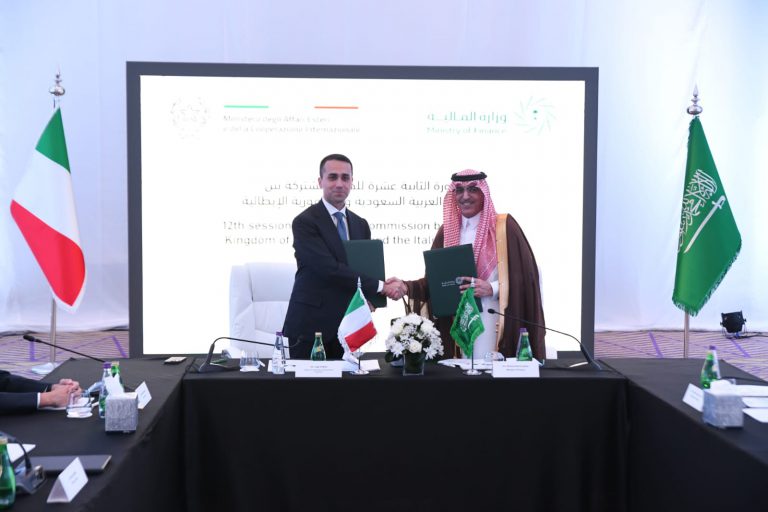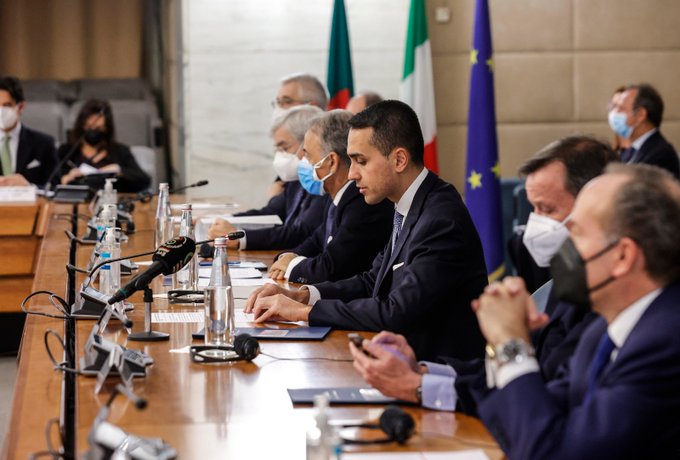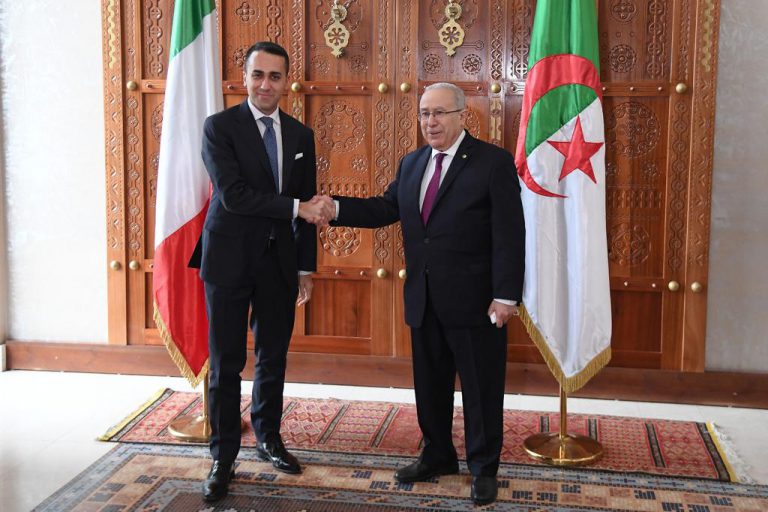“Italy may soon be able to reopen its embassy in Tripoli, which closed down in February 2015. Our government appointed Giuseppe Perrone ambassador to Tripoli,” Foreign Affairs Minister Paolo Gentiloni told Corriere della Sera. It may look like a mere formality at first sight, but it would be worth remembering that last year the Italian embassy was evacuated because the Libyan capital was in the hands of fundamentalist Islamic militias, the security of the Italian personnel could not be guaranteed and there were no reliable interlocutors.
For those who have followed the tribulations of a country once firmly in the hands of Muammar al-Qaddafi, the Italian embassy was always an indicator of the relations between Libya and Italy: respected and sometimes kept under pressure by the colonel’s regime, then demobilised on 18 March, 2011 due to the airstrikes of the coalition against him, assaulted and set on fire by Qaddafi loyalist forces on 1 May, 2011, reopened in the summer five years ago when Qaddafi was on the run. When it becomes operational again, the embassy may have to stay in a temporary facility, but the meaning of the choice is self-evident: while our allies, such as Britain and France deploy special units in Libya, and Middle-Eastern countries such as Egypt make it harder to achieve reconciliation among local factions, Italy stands as a country engaged in negotiations rather than ready to flex its muscles. However, this does not rule out the possibility of our military also being deployed in Libya.
Libyan Prime Minister of the Government of National Accord (GNA) Fayez Serraj, interviewed in Tripoli by Corriere della Sera, is asking Italy to speed up issuing visas for wounded Libyans to be treated in Italy and to provide field hospitals to care for those who are in the forefront of the fight against Daesh. Serraj believes that night vision goggles and flak jackets, which Italy already supplied, are not enough. Aside from a field hospital, what is Italy about to provide Serraj with?
A lot and at many different levels. I hope that the reopening of our embassy, as soon as security conditions allow, may seal our great cooperation effort. Our commitment should not come as a surprise: contributing to the stabilisation of Libya is a national priority, from security to immigration.
What means will be used to this end today?
With reference to the military field, we are providing logistic support to anti-terrorism operations. If we are asked to engage in other training activities of the Presidential Guard and actions to support the Coast Guard, we will consider them. Serraj delivered to us the letter we talked about a few days ago, when he asked me for members of our Military HealthCare Corps to be present in Libya.
This is to say that Libya’s prime minister would like Italian health personnel to be in Libya to take care of Libyan milita men fighting Daesh in Sirte. What happened to his letter?
I forwarded it to the Ministry of Defence which will see the way things evolve. Our cooperation encompasses economic and cultural initiatives, besides military and humanitarian actions.
Is Sarraj asking Italy to engage in protecting his country’s archaeological sites? Would it imply the deployment of soldiers as in the case of an Italian military health support?
We are not talking about boots on the ground, but of humanitarian missions. It is still to be seen what is entailed in the interest the GNA initially expressed in Italian support in the protection and enhancement of Libya’s cultural heritage.
Is Italy already allowing the US to use its bases in Italy to conduct airstrikes against Daesh?
Yes it is so, however our government gave its permission to do so not at the very beginning of the campaign but since the Minister of Defence informed our Parliament. They are target strikes hitting a well-defined area in Sirte.
Despite being against “war drums” on 9 March you said at the Senate that Italy would have defended itself in Libya from the threat of Daesh via « intelligence operations» which might have entailed «security conditions guaranteed by the support of Italian military troops». Are there Italian military in Libya now?
There are no military missions in Libya right now. If there will be missions, Parliament will have to approve them.
As to intelligence operations, would it not be sufficient to inform the Parliamentary Oversight Committee?
I do not wish to comment on classified operations
Then I am to understand that in Libya there may be military to protect our intelligence personnel and not troops. Mr Minister, to what extent is Egypt slowing down a solution to the Libyan crisis? The National Oil Corporation (NOC), for instance, has asked for the Zueitina oil terminal to be defended, which is said to have been attacked by forces of Khalifa Haftar, a general linked to Cairo.
Egypt considers Libya a question of national security, and understandably so, since they share long stretches of borders. I hope that these legitimate concerns will not give way to a temptation to split Libya into two parts.
A buffer State near Egypt and shreds of Libya for others.
It would be a threat for Italy, a tragedy for Libya and a big mistake for Egypt. Luckily the Egyptian government has been confirming its determination to work for a united Libya in all fora.
How do you think Europe should respond while Turkish President Recep Tayyip Erdogan, after the failed coup attempt, detained approx. 18,000 people, fired 1,700 military, incarcerated dozens of journalists and Ankara is now threatening not to comply with the agreements on blocking migrant flows according to which the EU entrusted Turkey with its own outside borders?
Europe must be firm in condemning any rights violation. At the same time we should not lose sight of our national interests, which include, if possible, maintaining relations with Turkey. I am a bit worried and shocked…
About what?
About the feeling I have that the issue of migration flows may disappear from Brussel’s agenda. If there are countries that believe that migration is an issue of sole concern for Italy and Greece, maybe because they feel safe thanks to some walls they just built on their borders, well they are wrong. We are raising our voice because it is the very foundation of the Union which is at stake here.






